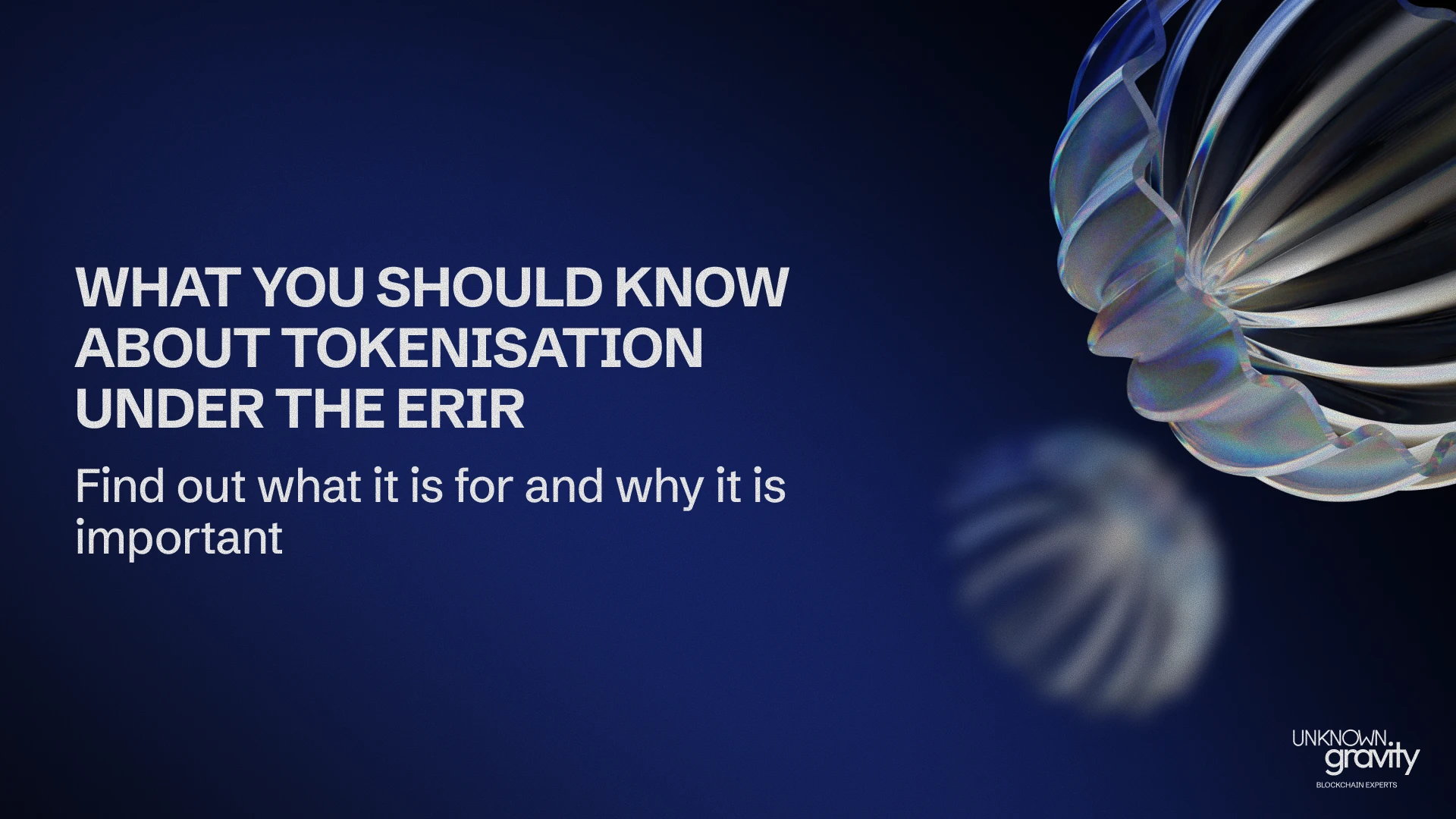The tokenization of financial assets is making strong progress in Europe, and with it comes the need for a clear regulatory framework that guarantees security, transparency and legal compliance.
La Law 6/2023, of March 17, on Securities Markets and Investment Services (LMVSI), introduces a key figure in this context: the Entity Responsible for Registration and Enrollment (ERIR).
In this article, we explain what ERIR is, how it works within the new legal framework, which entities can be ERIR and what their fundamental role is in the tokenization of financial instruments under decentralized registration (TRD) technologies.
What is the ERIR according to Law 6/2023?
The ERIR is the entity responsible for the registration and registration of negotiable securities represented using decentralized registration technologies (TRD), such as blockchain, which the LMVSI recognizes as legal support for the representation of financial instruments.
Unlike decentrally issued tokens, such as Bitcoin or Ethereum, financial instruments issued under TRD are of centralized issuance, with an identified issuer. Therefore, there must be an entity that maintains the official record of these values: this is the ERIR.
Who can be ERIR?
The Act clearly states that:
- In the primary issue of financial instruments, the ERIR must be an entity authorized to hold financial instruments in Spain, such as credit institutions, securities firms or securities agencies.
- For secondary markets within the so-called “Pilot Regime” —where securities represented in TRD-based systems are traded—, the role of ERIR is assumed by market infrastructures authorized by the National Securities Market Commission (CNMV).
Key functions of the ERIR
The ERIR is responsible for maintaining a single registration of tokenized values, simplifying the traditional double-tier system used for instruments represented by account annotations.
Its main functions include:
- Ensure the integrity and immutability of emissions.
- Directly and indirectly identify the holders of rights to negotiable securities and define the nature, characteristics and quantity of those securities.
- Facilitate the access of holders to relevant information on the instruments and the transactions carried out.
- Manage the identification of derivative rights holders.
- Process corporate events, registrations or liens that affect the issuance.
Responsibilities and obligations of the ERIR
The Act states that the ERIR will be liable to those who suffer harm as a result of:
- Lack of proper registration or registration.
- Inaccuracies or delays in records.
- Intentional or negligent breach of their legal obligations.
Damage repair must be carried out, whenever possible, in kind, thus reinforcing responsibility and trust in this regulatory figure.
Why is ERIR important for tokenization?
The creation of the ERIR allows the tokenization of financial instruments, whether issued or in subsequent transactions, to have solid and secure legal support.
This assumes:
- A qualitative leap in the legal security for issuers, investors and other market players.
- The elimination of unnecessary intermediaries through a single and transparent registry.
- The effective integration of blockchain technology with traditional financial regulations.
- A boost to adoption and trust in regulated digital assets within the European Union.
How to prepare to operate under the ERIR framework
For companies and entities that work with tokenized financial instruments, it is key to:
- Know and understand the legal requirements established in Law 6/2023 and the LMVSI.
- Identify who will act as ERIR in each case and coordinate registration and management processes.
- Adapt your systems and processes to integrate with the single registry managed by the ERIR.
- Implement strict compliance policies to comply with transparency and traceability obligations.
Conclusion
The figure of the Entity Responsible for Registration and Enrollment (ERIR), created by Law 6/2023, marks a before and after in the tokenization of financial assets in Spain and Europe.
It guarantees security, transparency and accountability in the registration and management of financial instruments represented by blockchain and other TRDs.
For any company that wishes to take advantage of the opportunities of tokenization in compliance with European regulation, understanding and collaborating with the ERIR is essential.
















.webp)
.webp)





































.png)
.webp)
.webp)
.webp)
.webp)
.webp)
.webp)
.webp)
.webp)
.webp)
%20(1).webp)
.webp)
.webp)
.webp)

.png)
.png)
.png)



